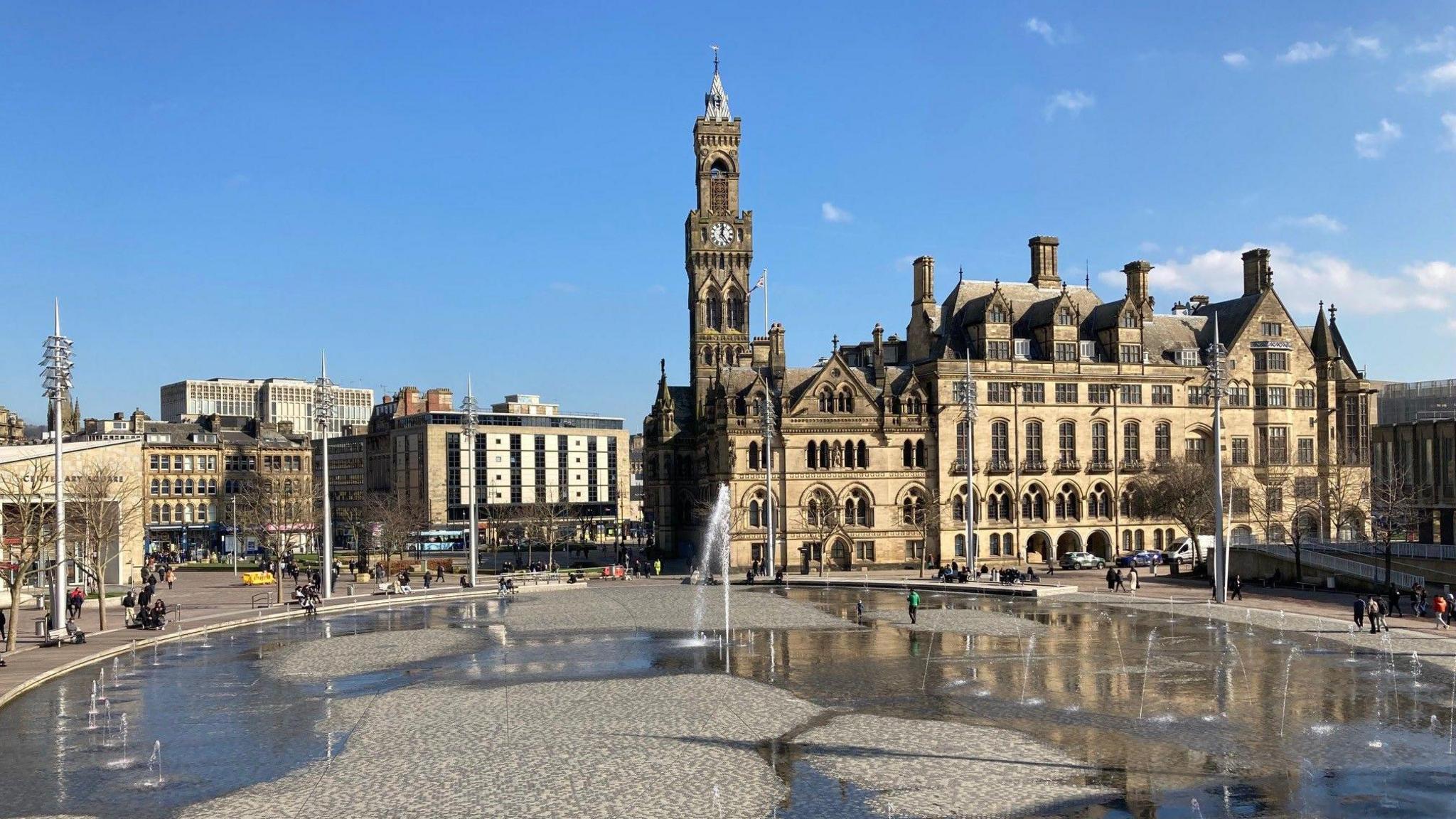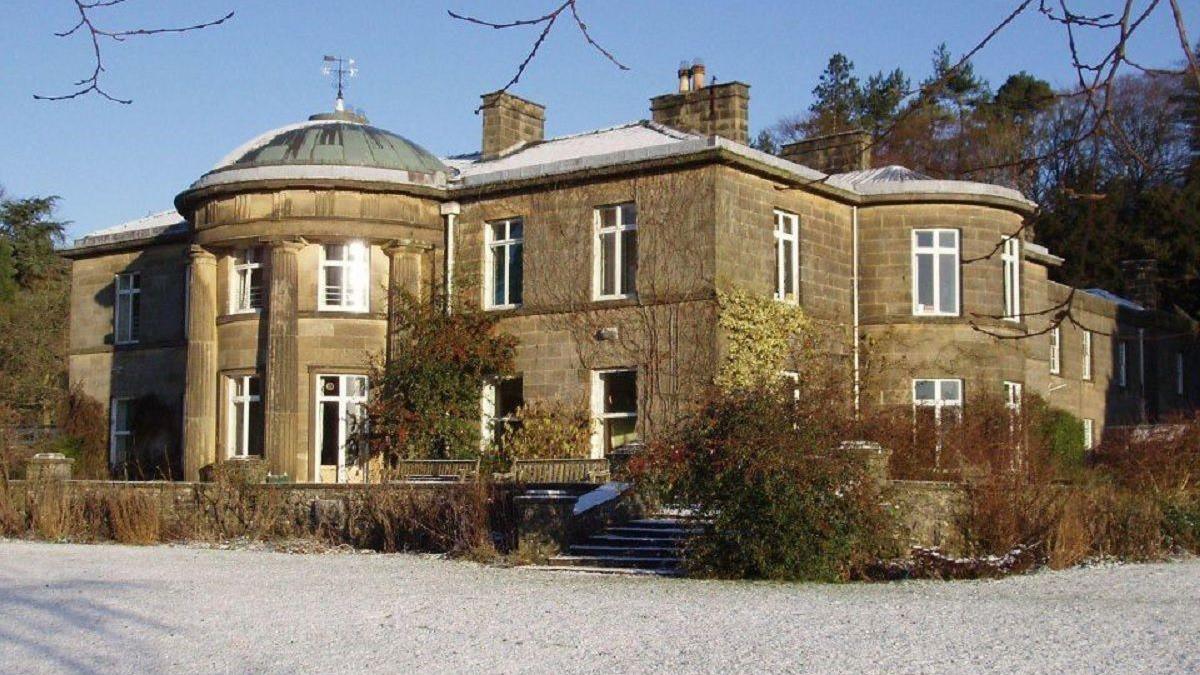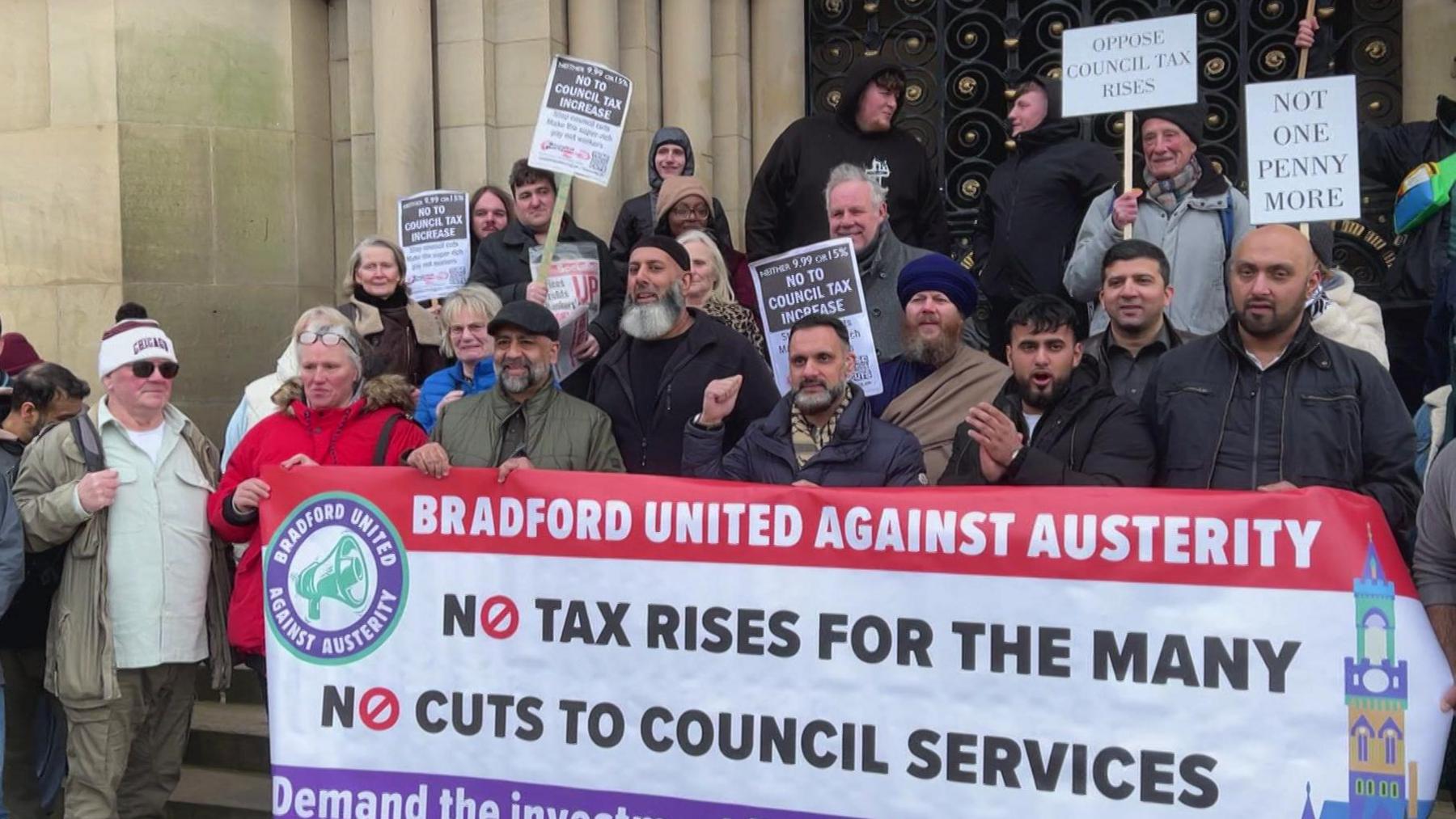Why could Bradford face another big council tax hike?
Leader of Bradford Council Susan Hinchcliffe says the local authority is now on a more "financially sustainable footing"
- Published
In April, residents of Bradford and surrounding towns were hit with a council tax rise of just under 10% - the largest increase in the country.
Faced with effective bankruptcy, the Labour-run council was given special government permission for the increase to help protect public services and reduce borrowing costs.
Cuts worth £42m were also approved.
Now, just months later, it looks like another increase is on the way.
How much will council tax go up by next year?
There will not be a repeat of the 9.99% increase.
Senior councillors in Bradford have approved a council tax rise of 4.99% for the 2026-27 financial year.
That is the maximum increase allowed without holding a local referendum.
Councils in the region have tended to increase tax by this amount in recent years, so it is not unusual.
Broken down, it is a 2.99% council tax rise and 2% to help pay for social care.
It is not a done deal yet - the budget plans still have to be approved at a meeting of the full council next year.
But council leader Susan Hinchcliffe says council tax for Bradford district residents is still below average when compared with other similar councils across the country.
What does my council tax pay for?

The government approved last year's large increase to help protect public services like bin collections
Council tax helps to pay for council services which are used by residents.
These include bin collections and recycling, fixing roads, street cleaning, street lighting, child protection and social care.
It also helps to fund redevelopment projects in the city centre and new housing.
Why is it going up again after last year's rise?
Council tax tends to rise every year for a number of different reasons.
Like everyone's household budget, local authorities have to pay more for things like electricity because of inflation, and the cost of delivering services like adult social care has also risen in the last 12 months.
They also have to pay staff more because of rises to the minimum wage and as an employer have been hit by paying extra in National Insurance Contributions.
In England, local authorities can raise council tax by 4.99% without asking the government for permission.
It means an average Band D property will pay £109 more.
What about all the buildings the council has sold?
You might have seen stories about the council selling off buildings to try to make more money.
This is quite unusual. Councils are not normally allowed to sell off property to fund day-to-day services like social care and bin collections - but earlier this year the government gave Bradford Council "exceptional financial support" which allowed it to do so.
The authority has made more than £22m from selling off properties and land it owns in recent years, but the sum has left it well short of the £150m target it hoped to raise.
The former Rhodesway Pool, which was sold for £500,000, Hammerton Filling Station, which brought in £93,000 and a pay-and-display car park in Little Germany, which went for £322,000, are among the assets the council has sold.
Could Bradford Council still go bankrupt?

Although councils cannot go bankrupt, they can have their spending heavily restricted
Last year, there was a lot of talk about whether or not the council would "go bankrupt".
Councils technically cannot go bankrupt - but they can issue what's called a Section 114 notice, where they cannot commit to any new spending, and must come back with a new budget within 21 days that falls in their spending envelope.
And when they do, it often means an impact on residents with severe cuts to frontline services.
This is why Hinchcliffe says the council made the "difficult decision" last year to raise council tax by almost 10% and sell off some buildings to reduce borrowing costs and protect public services.
She says the authority's actions over the last year are bringing "financial stability" to the council.
"We have a seven-year plan to secure Bradford Council's financial future," she says.
"Next year we'll be mid-way through that plan and this latest report shows that it's working.
"There's still a lot to do, but the direction of travel is positive and steady."
What do other parties say?
The Conservative Group in Bradford says "at a glance the figures look encouraging and there are positives in there".
However they also warn of a "very steep hill to climb" and believe residents in the Bradford district still face "council tax rises significantly above inflation for many years to come".
The Green Party in the city says the current plans show that "Bradford Council's Labour administration has failed to deliver the change residents were promised" and that "people are still being asked to pay more for less, while vital services are being stretched".
The Bradford Independents Group says it will "never support a council tax rise in Bradford" and believes that the "residents of Bradford should not be made to pay for the mismanagement of the council, failures in children's services, mismanaged and over spent budgets".
The Liberal Democrats have been approached for comment.
Get in touch
Tell us which stories we should cover in Yorkshire
Listen to highlights from West Yorkshire on BBC Sounds, catch up with the latest episode of Look North.
Related topics
- Published28 October

- Published23 October

- Published7 March
